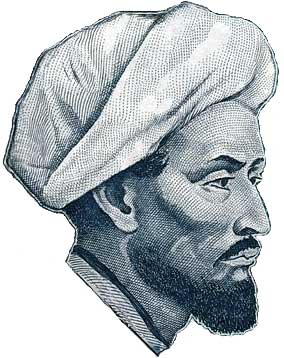 Al-Farabi is one of the leading Muslim scholars who studied multiple subjects like politics, philosophy, ethics, logic, Muslim law, mathematics, and music. His endless contributions were not only admired by other scholars but also opened ways for them to observe and work on his subjects. He was a strong follower of the Greek philosopher Aristotle. Therefore, Al-Farabi was given the title of ‘the second teacher’ and known as Alpharabius in the West.
Al-Farabi is one of the leading Muslim scholars who studied multiple subjects like politics, philosophy, ethics, logic, Muslim law, mathematics, and music. His endless contributions were not only admired by other scholars but also opened ways for them to observe and work on his subjects. He was a strong follower of the Greek philosopher Aristotle. Therefore, Al-Farabi was given the title of ‘the second teacher’ and known as Alpharabius in the West.
Biography – Life Span
Al-Farabi’s full name was “Abu Nasr Muhammad bin Tarkhan Al-Farabi” and he was born at Wasij, a village near Farab, Kazakhstan, in 872 AD. He gained his early education in Baghdad, where he learned Arabic. Then he joined a Christian teacher in Syria from whom he learned about Aristotle’s works. Then he moved and joined another Christian teacher from whom he learned political science. Therefore, he laid the basis of Muslim philosophy.
His writings motivated many other Muslim scholars like Averroes (Ibn Rushd) and Avicenna (Ibn Sina). He combined the philosophical and political concepts of Greek philosophers like Plato, Aristotle, and Ptolemy and produced his writings on their works. No Muslim scholar, before Al-Farabi, wrote on state and politics. He carried out vast studies, took references from the Quran, hadith, and other sources of Muslim laws and gave the concept of statehood. He gave the concept of statehood in terms of Islamic law. By that means, he defined the standards and rules for a good leader, people, city-state, and nature of law to rule people on the basis of Islamic terms.
Besides, he was also fond of other subjects. Due to his interest in Music, he wrote a book on it named ‘The Great Book of Music’. Al-Farabi spent the last days of his life in Damascus, Syria and died there in 950 AD.
Discoveries and Contributions
Al-Farabi made various contributions in different subjects by which he earned fame. These include Muslim philosophy, religion, logic, and metaphysics – a branch of science that deals with spiritual and material existence. Among his works on society, law and order, and geometry. Some of his contributions are:
- He was inspired by Plato’s concept of politics which he read from Plato’s book, ‘The Republic’. Which led him to write a similar book, named ‘The Ideal City-State’, on the law with many additions that suited that time.
- Another contribution of Al-Farabi is that he explained the concept of metaphysics and defined that it doesn’t only belong to God, but it also covers other things like the universe and its expansion as well.
- He believed that music can cure the ills of the human soul. Therefore, he studied very deeply about it. His such great efforts made him write a book on music known as ‘the book of music’.
Achievements and Facts
His achievements made him a notable scholar in the Golden Age of Islam. A few of them are:
- He was given the title of ‘The Second Teacher’ because of his vast knowledge. The title for the first teacher was given to Aristotle – the Greek scholar.
- He was the first of Muslim scholars to write on politics; the concept of state and leadership on the basis of Islamic laws.
- He translated, introduced and expanded the concepts of the Greek philosophers from their written books.